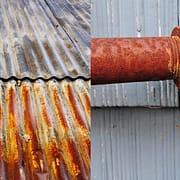How to get your ducks in a row: Careful planning and a pre-purchase building inspection
After hunting high and low, finding that perfect home or property is an exciting and satisfying discovery but actually signing the deed and making the purchase can be a pretty stressful process. Once you’ve signed your name you’ll likely have the thought racing through your mind, “What if there’s something wrong with the place that I didn’t notice before?” Having a pre-purchase building inspection is an important step in relieving that anxiety but there are a whole lot of things you can do to protect yourself when buying a home.
Being organised and doing the groundwork is the easiest way can feel confident in your investment and ensure the buying process is as smooth as possible. Here are a few things to consider when it’s time to go unconditional:
Pre-approval first!
When you know that it’s the right time to dive into house hunting, you might want to consider seeking pre-approval from your bank or lender. That way, when you do find that perfect property, you are ready to go and won’t miss an opportunity. Unfortunately, getting that approval can sometimes be pretty tedious and time consuming. Lenders need to do a whole lot of background research into your finances, such as your income, credit history, and expenses.
With a pre-approval in place you’ll have a better idea of homes that are within your budget, saving you time and avoid disappointment later. Giving them the time they need to approve your loan request is a great first step when you embark on your hunt for your dream home.
Extend time for due diligence
Due diligence is your way of eliminating any doubts you may have and allowing the time to back out of the deal if you notice something’s not quite right. That’s why getting a comprehensive appraisal of the physical and financial risks of your potential new home is a really important step in the home buying process. While it’s ideal to get a pre-purchase building inspection before you make an offer, sometimes you just don’t have time when you are trying to swoop in on a great deal.
Extending the time for due diligence is your way as the buyer to safeguard your investment by giving you the time to get a building inspection company to review any potential risks and make sure that all your ducks are in a row. If they offer 5 days, request 10 (or even 30) to give yourself the time you need to get the most thorough review of the property that you can, as well as plenty of time to sort finances. There are so many variables that add or take away value from a house to consider. Having enough time will alleviate the stress.
Get a pre-purchase building inspection
You wouldn’t buy a car without popping the hood and making sure the engine isn’t about to fall apart, and buying a house shouldn’t be any different. But unless you know what to look for, getting a professional to check out the bones of a house and any structural concerns is your best bet at making sure you are aware of all factors impacting the value of your investment.
Having a pre-purchase building inspection will also make getting that final approval on your home loan a whole lot simpler and can help you negotiate on the price of the property if you do discover any significant issues.
Go out on a LIM
Local councils compile what is called a Land Information Memorandum (LIM) for your property – which is basically a record of information about a property including rates, building consents, developments of the property, and any potential risks such as flooding or erosion.
While you are likely to get a copy of the LIM from the real estate company, remember that they are representing the seller and their best interests. Make sure it’s a recent version and consider requesting one from the council yourself.
Get the Council Property File
Alongside your LIM, be sure to get the Council Property Files – the easiest way to compare what is on file at the Council to what you are looking at to buy. Property Files include construction plans if they’re available, although unfortunately due to the age of some properties and amalgamation of Councils, plans and documents can get lost.
Take the stress out of the home buying process and do some homework before you sign. Being organised and covering all bases is essential to safeguard your investment. Having a professional building inspector weigh in on the value of the property will rid you of any doubts and make buying your perfect home is exciting – not a pain in the neck.
Get a quote for your pre-purchase building inspection now.


